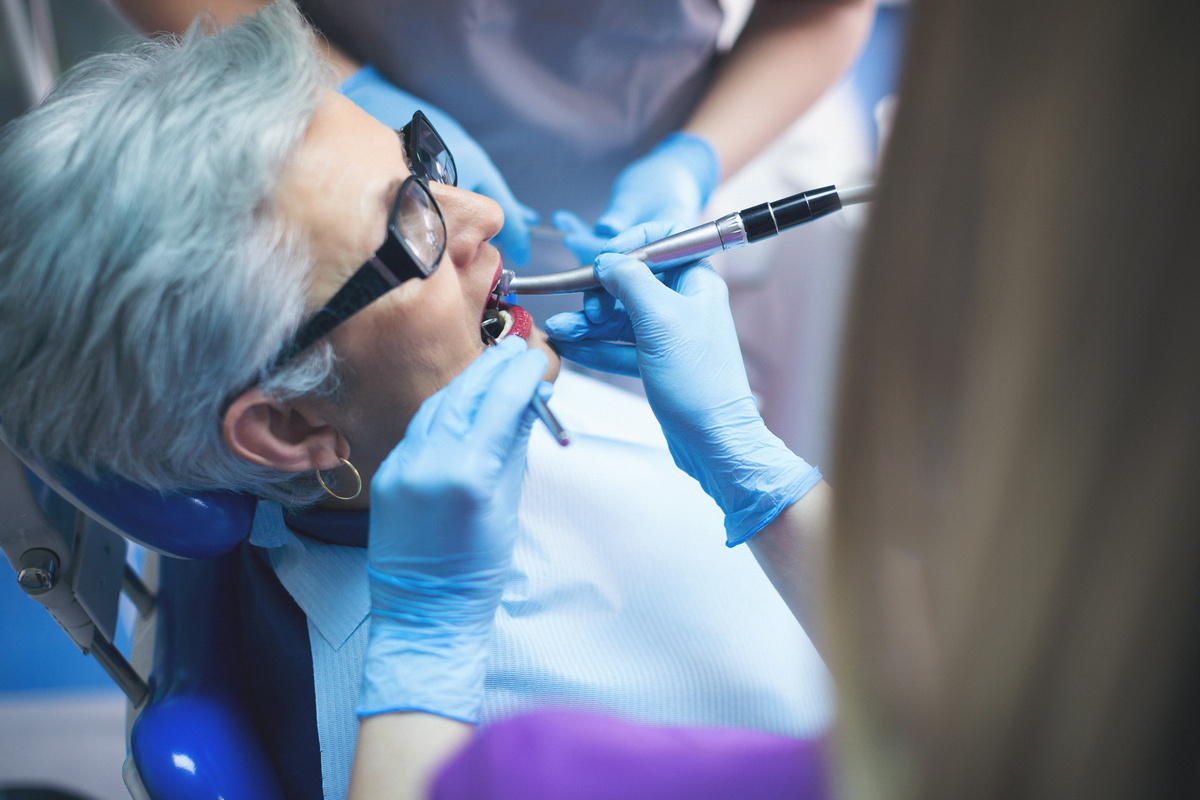Nothing can ruin your day quite like sudden, intense tooth pain or an unexpected dental injury. While some dental issues can wait for your next routine appointment, true dental emergencies require quick attention to prevent serious complications and preserve your oral health. Understanding the difference between urgent and non-urgent dental situations can help you make an informed decision when faced with unexpected oral health concerns.
At Beechnut Dental Care, we understand that dental emergencies don’t follow regular business hours. Our team, led by University of Texas-educated Dr. Dang, is dedicated to providing guidance and care when you need it most, helping you navigate these stressful situations with confidence and ensuring you receive the best possible treatment for your specific emergency.
What’s Considered a True Dental Emergency?
True dental emergencies involve situations where immediate care is necessary to save a tooth, stop ongoing bleeding, or alleviate severe pain. These situations require prompt attention, often within minutes or hours of the incident occurring.
Knocked-Out Teeth
A knocked-out tooth is one of the most time-sensitive dental emergencies you can face. The American Dental Association recommends always keeping a knocked-out tooth moist, placing it back into the socket without touching the root if possible, or storing it between your cheek and gums while seeking immediate dental care. The chances of successfully reimplanting a tooth decrease significantly after the first hour, making quick action essential.
When handling a knocked-out tooth, remember to hold it by the crown rather than the root to avoid damaging the delicate tissues needed for reattachment. If the tooth appears dirty, you can gently rinse it with water, but avoid scrubbing or using soap or chemicals. If you cannot reinsert the tooth yourself, store it in milk, your own saliva, or a specialized tooth preservation solution until you can reach our office.
Severe Tooth Pain
Intense, throbbing tooth pain that prevents you from sleeping, eating, or concentrating typically indicates a serious problem such as an infection or deep decay. This type of pain often worsens over time and may be paired with swelling, fever, or sensitivity to temperature changes.
Severe tooth pain can signal various underlying issues, including advanced decay that has reached the tooth’s nerve, a cracked tooth that exposes sensitive inner layers, or an infection that has spread to the surrounding tissues. The intensity and consistency of the pain can indicate how urgently treatment is needed.
Dental Abscesses and Infections
An abscessed tooth occurs when bacteria get into the inner pulp of a tooth through decay, periodontal disease, or a crack, resulting in infection and the formation of pus. Signs of a dental abscess include the following:
- Severe pain
- Swelling of the face or gums
- Fever
- Bad taste in your mouth
If left untreated, dental infections can extend to other parts of the body and become life-threatening. They are particularly concerning because they can progress rapidly. The infection may spread from the tooth to the neighboring bone, soft tissues, and even into the bloodstream. Symptoms that warrant immediate attention include facial swelling, difficulty swallowing, high fever, and swollen, painful lymph nodes in the neck.
Significant Trauma and Bleeding
Any dental injury that results in uncontrolled bleeding requires immediate attention. This includes injuries from accidents, sports activities, or falls that cause teeth to become loose, fractured below the gum line, or completely displaced. Soft tissue injuries inside the mouth, such as deep cuts to the tongue, lips, or cheeks, also require prompt medical attention.
Facial trauma can sometimes cause hidden damage that isn’t immediately apparent. Even if teeth appear intact after an injury, the supporting structures may be damaged, leading to complications later if not properly evaluated and treated.
What Dental Situations Can Wait for Regular Care?
Fortunately, not every dental concern requires immediate emergency treatment. Some situations can be safely managed with temporary care until your next available appointment.
Minor Chips and Cosmetic Damage
Small chips in teeth that don’t cause pain and have no sharp edges can typically be addressed during regular business hours. These cosmetic issues, while concerning, don’t usually pose immediate health risks. You can cover sharp edges with dental wax or sugar-free gum to shield your tongue and cheeks until your appointment.
Lost Fillings or Crowns
A lost filling or crown, while inconvenient, usually doesn’t require emergency care unless accompanied by significant pain. You can temporarily protect the uncovered tooth by applying dental cement available at most pharmacies or by covering the area with sugar-free gum. Avoid chewing on that side of your mouth and maintain good oral hygiene around the affected area.
Mild Toothaches
Mild toothaches that respond well to over-the-counter pain medication and don’t interfere with daily activities often indicate less serious issues that can be addressed during regular appointments. However, it’s crucial to monitor these symptoms carefully, as they can escalate quickly. If the pain worsens or persists for more than a day or two, it may indicate a developing problem that needs prompt attention.
Food Stuck Between Teeth
While uncomfortable, food lodged between teeth isn’t usually an emergency unless it’s causing severe pain or you suspect it may be infected. Try gently flossing to remove the debris, but avoid using sharp objects that could harm your gums or teeth.
What to Do During a Dental Emergency
When facing a dental emergency, remaining calm and taking swift first aid measures can significantly impact the outcome of the situation. For bleeding, apply gentle and consistent pressure with clean gauze or a clean towel. Cold compresses applied to the outside of the face can help lessen swelling and provide some relief from pain.
Pain Management
Avoid applying aspirin directly to the gums or teeth, as this can cause tissue damage. Instead, take over-the-counter pain medication as directed on the package. Ibuprofen is often particularly effective for dental pain because it reduces both pain and inflammation.
Managing Infections
If you suspect a dental infection, rinse gently with warm salt water to help minimize bacteria and provide temporary relief. Mix half a teaspoon of salt in a cup of warm water and swish softly around the affected area. Avoid using hot or cold compresses on suspected infections, as extreme temperatures can worsen the pain.
Protecting Damaged Teeth
For cracked or broken teeth, avoid chewing on the affected side and protect the area from temperature extremes. Rinse your mouth with warm water to remove any debris, and apply a cold compress to the outside of your face if there’s swelling.
How to Prevent and Prepare for Dental Emergencies
While not all dental emergencies can be prevented, you can limit your risk by taking the following measures:
- Maintain good oral hygiene
- Wear protective mouthguards during sports
- Avoid hard foods and objects that can crack teeth
- Address dental problems promptly before they become emergencies
Keep a basic dental emergency kit at home that includes gauze, over-the-counter pain medication, dental wax, and the contact information for our office. Having these supplies within reach can help you manage the situation more effectively while arranging for professional care.
Contact Beechnut Dental Care for Emergency Dental Care
When dental emergencies strike, having a trusted dental team you can rely on makes a world of difference in preserving your oral health and getting back to your regular routine. Dr. Dang and our experienced team at Beechnut Dental Care are committed to providing prompt, compassionate emergency care when you need it most. We understand that dental emergencies can be daunting, so we prioritize clear communication and gentle treatment to help you feel comfortable throughout the process.
Don’t let dental pain or injury compromise your health and well-being. If you’re experiencing a dental emergency or have questions about whether your situation requires immediate attention, contact Beechnut Dental Care at (713) 839-0900 or visit our contact page to receive the prompt care you deserve.


